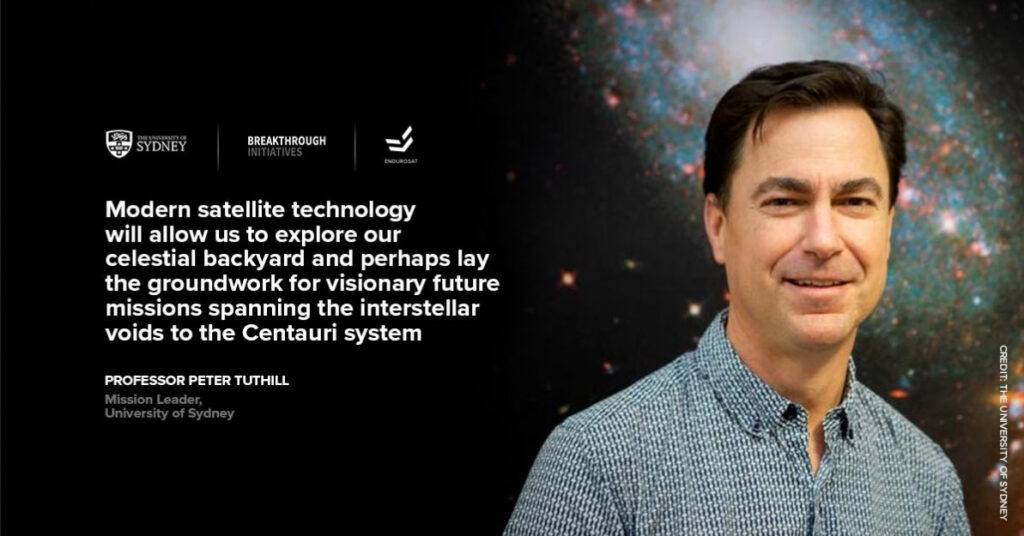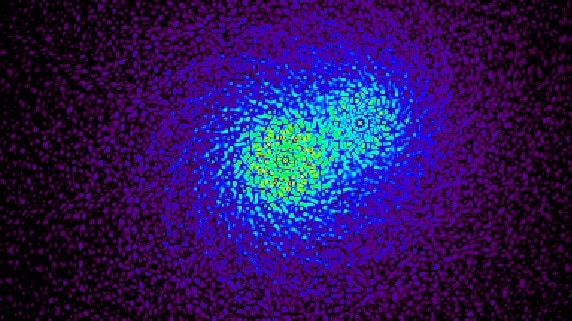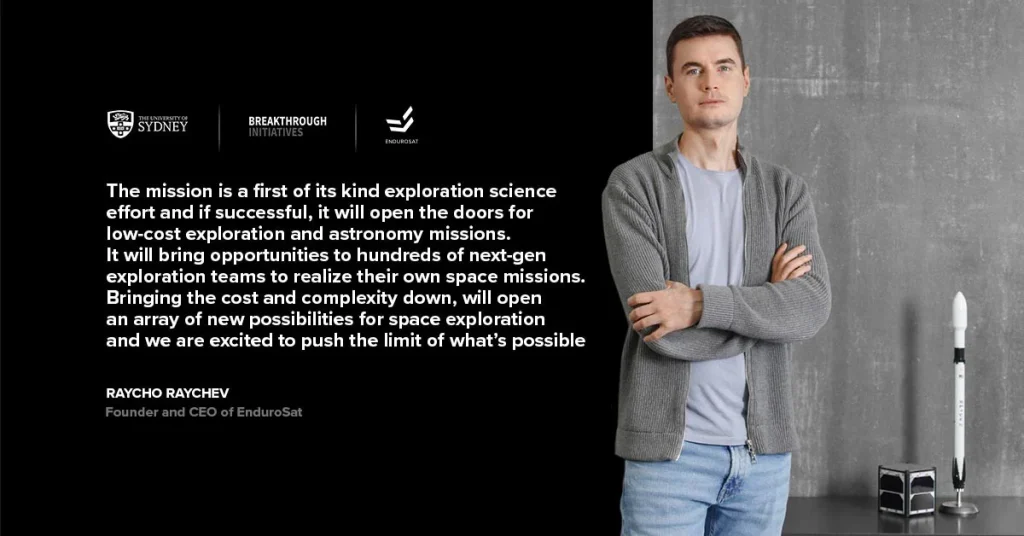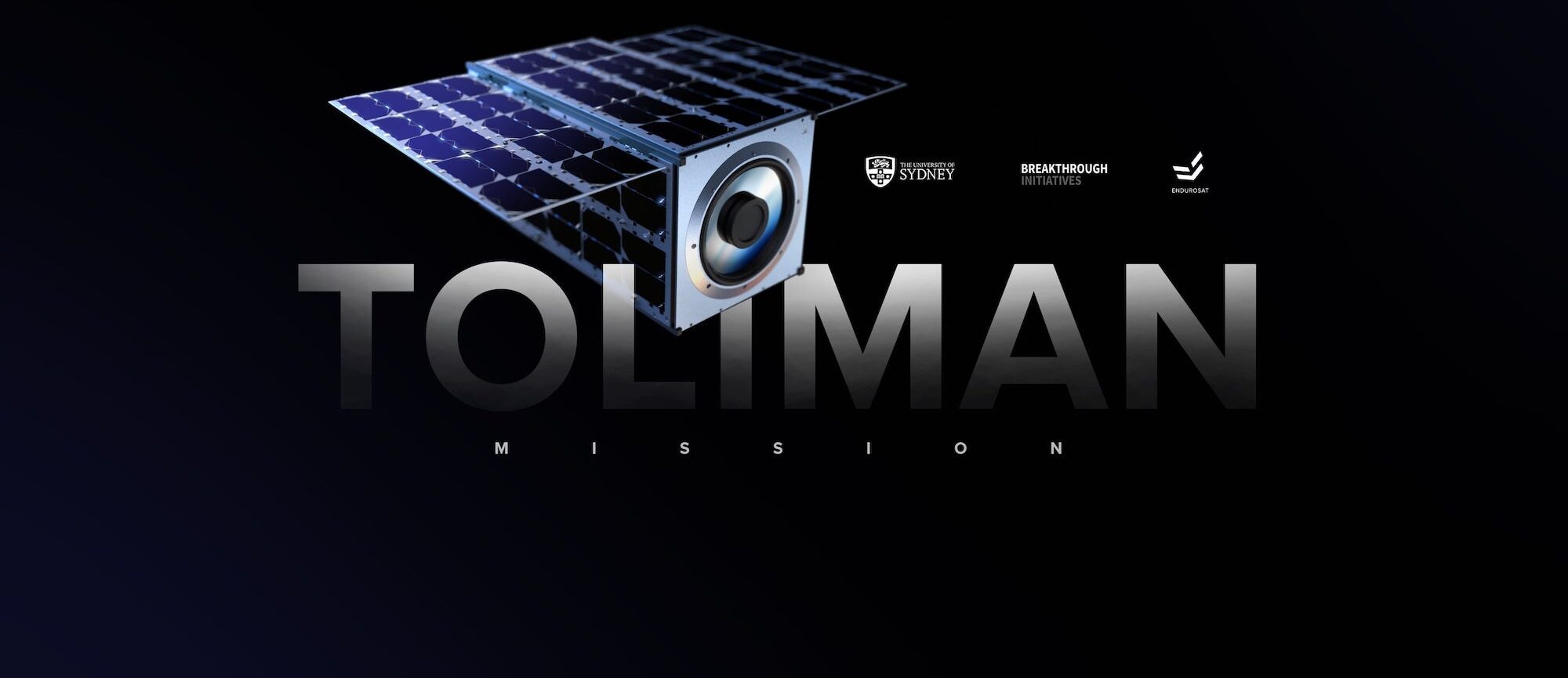Alpha Centauri tantalisingly close to look for extra-terrestrial life
Led by Professor Peter Tuthill, the TOLIMAN mission to search for planets capable of hosting life around Alpha Centauri has taken a step forward, engaging EnduroSat to take our technology into orbit.

The University of Sydney has signed a contract with EnduroSat, a leading provider of micro satellites and space services, to explore the question of life beyond Earth, starting with our nearest neighbour star system, Alpha Centauri.
Backed by the Breakthrough Initiatives in California, the mission was dubbed TOLIMAN after the star’s ancient Arabic name. It will search for planets in the habitable or “Goldilocks” zone around two Sun-like stars in the system, Alpha Centauri A and B, which are just four light years from Earth.
Mission leader Professor Peter Tuthill from the University of Sydney said: “That’s tantalisingly close to home. Astronomers have discovered thousands of exoplanets outside our own solar system but most are thousands of light years away and beyond our reach.
“Modern satellite technology will allow us to explore our celestial backyard and perhaps lay the groundwork for visionary future missions spanning the interstellar voids to the Centauri system.”
Discovering exoplanets is a major technological challenge, even for large space telescopes. For a mini satellite, the task is daunting. To achieve this, the team is developing a small custom-designed space telescope capable of extremely fine measurements.

Simulated view of the Centauri binary through the TOLIMAN telescope.
The satellite needs to fit the telescope within a limited volume – just 12 litres – and maintain its thermal and mechanical stability with exquisite precision using active systems. EnduroSat will provide the delivery system for the custom-built mini satellite that supports the mission.
“Any exoplanets we find that close to Earth can be followed up with other instruments, giving excellent prospects for discovering and analysing atmospheres, surface chemistry or even fingerprints of a biosphere – the tentative signs of life,” said Professor Tuthill from the Sydney Institute for Astronomy and School of Physics.
EnduroSat’s flight-proven MicroSat technology can downlink payload data at a speed of 125+ Mbps, which will be critical for downloading all data from prolonged observation sessions.

Founder and CEO of EnduroSat, Raycho Raychev, said: “We are exceptionally proud to partner in this mission. The challenges are enormous, and it will drive our engineering efforts to the extreme. The mission is a first-of-its-kind exploration science effort and will help open the doors for low-cost astronomy missions.”
Dr S. Pete Worden, Executive Director of Breakthrough Initiatives, said: “It’s very exciting to see this program come to life. With these partnerships, we can create a new kind of astronomical mission and make real progress on understanding the planetary systems right next door.”
Professor Tuthill has a proven track record in designing high-precision instrumentation and projects for international astronomy projects. He is the only Australian scientist to have led direct instrument design work on NASA’s James Webb Space Telescope project, which has heralded a new era in observational astronomy.
He worked on designing the NIRISS Aperture Masking Interferometry mode on the James Webb. This offers high spatial observational resolution, critical in the hunt for exoplanets.
Professor Tuthill said: “My experience helping to develop technology for James Webb will be hugely useful in designing observational equipment for the TOLIMAN project.”

